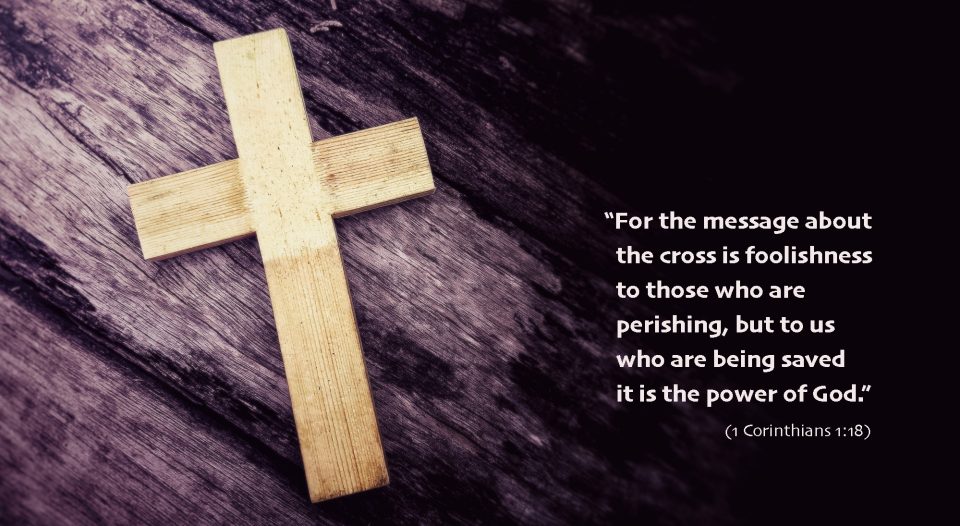Lectionary for March 3, 2024
Third Sunday in Lent
Exodus 20:1-17; Psalm 19;
1 Corinthians 1:18-25; John 2:13-22
While catching up with a colleague, I asked about his children. He said they were doing well, and that Lucy was really growing also. I said good and was ready to move on, but he asked if I knew who Lucy was. I was flustered, thinking that maybe I had misremembered his kids’ names. Was Lucy one of his daughters? “Of course I know who she is,” I said. Calling my bluff, he asked, “Who is Lucy?” When I admitted that I didn’t know, he said, “Lucy is my daughter’s pet python, and she is really growing.” My false confidence in covering up for my uncertainty about Lucy’s identity was ridiculous and laughable. This week’s lectionary readings point to how following God is almost laughable.
When Jesus visited Jerusalem during Passover—as he did frequently—he made a rather startling claim: If the temple were to be destroyed, in three days he would raise it up again. That was patently ridiculous. Herod the Idumean (and his inheritors) had spent a fortune and several decades to raise, enlarge and reclad the temple in Jerusalem, and to dramatically increase the size of the surrounding courts. Herod also built the Antonia Fortress, named for Herod’s patron Mark Antony, which menacingly overshadowed the rebuilt temple and housed the garrison of soldiers who caused multiple massacres in the environs.
Make no mistake, it’s not just laughable that one man could raise the stones of the temple to rebuild it after destruction—it’s also a threat. Jesus issued a direct challenge to the Herodians and the patrons in Rome by threatening to destroy the sign of their power and control. Both the destruction and the rebuilding were absolutely ridiculous.
Eventually the Romans did destroy the temple that they had indirectly funded through Herod, but it wasn’t done by one man and it took years of struggle. The Gospel writer wants to make sure that readers know that Jesus was speaking about the resurrection of the temple of his body, which the Romans had also destroyed. It is no less a ridiculous claim, however, that God could restore life after death. Yet, that is the cornerstone of our faith.
As we continue this Lenten journey toward death and resurrection, we must take time to examine a bizarre path that we are called to walk.
Paul builds on the notion of a dying messiah to construct a culturally contextualized theology and Christology. The word of the cross is foolishness to those who are perishing, but to those who are being saved, the cross is the power of God. Paul keenly observes that Greeks look for wisdom and Jews look for miraculous displays of power. That Jesus allowed himself to be murdered by the Romans at the behest of some religious leaders seems like neither wisdom nor power. Christ crucified is a stumbling block to those who looked for miracles and is foolishness to those who looked for wisdom. In a word, Jesus accomplishing anything by his death would seem to be ridiculous. Yet, the foolishness of God is wiser than humanity and the weakness of God is stronger than humanity.
Even going all the way back to Exodus 20, some of God’s first commandments at Sinai point to a kind of almost laughable reliance on God alone. Unlike surrounding peoples, those who followed God were not to make engraved images of any living thing—and certainly not worship those images. Unlike others, God’s people were to worship only one god.
Most bizarrely, the Sinai community was to rest on the Sabbath day, too, because their God ceased work on the seventh day. The notion of a day of rest may not seem revolutionary to us as inheritors of the weekend, but the idea of emulating a god who stops work was, and is, ridiculous for people encountering the idea for the first time. In my outreach and mission work, I’ve found that when people from other religious traditions outside of Judaism and Christianity start reading the Bible for the first time and get to Genesis 2:2, in which God ceased divine work, they are immediately perplexed about a god who rests. The idea is almost laughable!
As we continue this Lenten journey toward death and resurrection, we must take time to examine a bizarre path that we are called to walk. In a world that values strength and permanence, we are called to follow the Jesus who gave himself over to death. In a world that values wisdom and miraculous power, we are called to follow a messiah who was silent in the face of accusations and refused to call legions of angels to save himself from execution. In a world that lionizes productivity and performance, we are called to faithful cessation from work and striving, because that is what God does. The life of discipleship is almost laughable. But we remember that God’s wisdom is greater than human wisdom.






